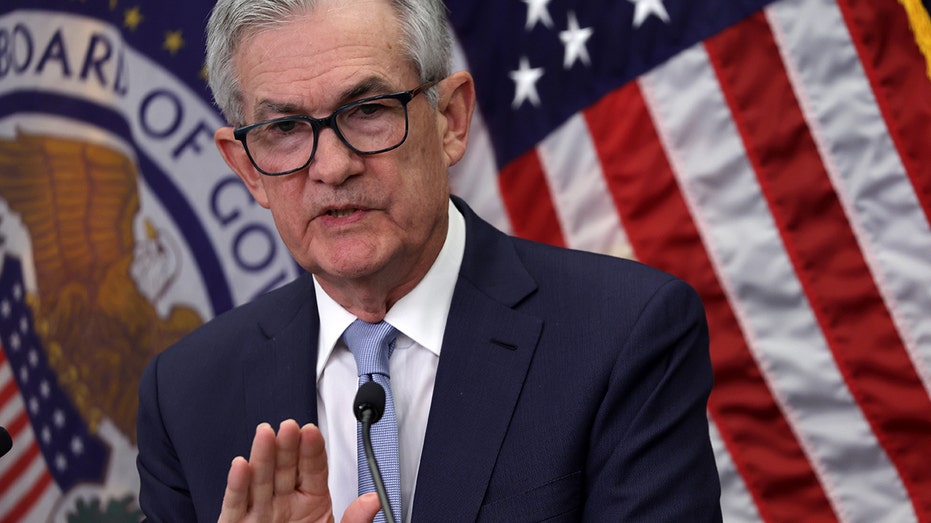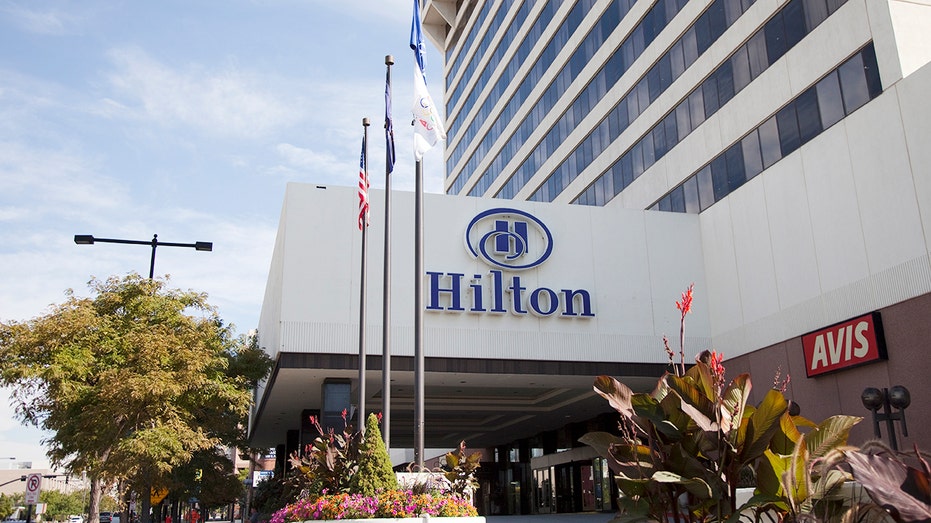Business hotels face increased default risk in uneven travel recovery
Hotels relying on business travel and conferences encounter refinancing challenges, partly because of falling property values as occupancy rates stay depressed
Recession a 'worry' for Dream Hotel Group CEO
Dream Hotel Group CEO Jay Stein discusses the positive and negative trends he is noticing amid the uncertain economic backdrop.
Some hotel owners that rode out the coronavirus pandemic are finding the recent travel rebound might not be enough to persuade lenders to extend new credit when their debts mature in the coming months or years.
Leisure travel has rebounded since the second half of last year, but the recovery has been much weaker for facilities with large meeting rooms that rely on business trips and conferences, partly because many meetings are now held remotely. Even as business-focused hotels can attract some vacationers, the numbers aren't high enough to make up for the slow recovery in business travelers.
Persistently low occupancy rates for business-focused hotels have driven down their property values. As a result, lenders are asking hotel owners to put up more capital before agreeing to refinance their loans — but cash-strapped borrowers saddled with lots of debt might not be able to meet the requirements.

Remote work means fewer business trips, potentially causing hardship for business travel oriented hotels.
Banks are tightening lending standards because the values of certain hotels and other commercial-real-estate assets have been hurt by changing consumer and business habits post-Covid, said Richard Shinder, founder and managing partner of boutique investment-banking and fiduciary-services firm Theatine Partners. No one knows how those assets will be repriced in the future, he said.
"You compound that with higher interest rates, inflation and recessionary fears. You have multiple factors that are impacting lenders' conservatism ... around extending the credit," Mr. Shinder said.
Hotels were hit hard by the pandemic, but the sector also benefited from government relief money and lenders willing to negotiate easier terms to help them get through the crisis. Now, rising interest rates and slowing economic growth are exposing some hotels that remain in bad shape and potentially pushing them into default.
Tens of billions of loans backed by hotel properties as collateral are coming due in the next two years. Roughly $30.9 billion, or about 30% of the $101.63 billion securitized hotel loans in the U.S., are set to mature by 2024, according to commercial-real-estate brokerage firm Newmark Group Inc.
Hotels are often financed by floating-rate loans with three-year terms, while loans for offices or retail centers are typically much longer, sometimes reaching 20 years. That means hotel owners are more exposed to a sudden interest-rate spike and have to refinance debt more frequently. The Federal Reserve has raised rates at the most rapid rate since the early 1980s to combat inflation.

Federal Reserve Board Chairman Jerome Powell speaks during a news conference after a Federal Open Market Committee meeting on December 14, 2022 in Washington, DC. (Alex Wong/Getty Images / Getty Images)
But lenders that had offered loan extensions or forbearances in the early days of the pandemic are less likely to lend to the same borrowers because of economic uncertainties facing those hotels, said Michelle Russo, founder and chief executive of hotelAVE, a consulting firm focused on the hospitality industry that has provided services to roughly 1,000 hotels and currently manages more than 70 of them.
FED SIGNALS MORE INTEREST RATE HIKES NEEDED TO FIGHT STICKY INFLATION
Ms. Russo said one of hotelAVE's client hotels "got a letter from the bank saying, 'We just want you to know, nine months out, we are not renewing [your loan]. Don't come to us."
As many as 10 hotel owners in the U.S. filed for bankruptcy this January, compared with just two in January 2022, according to New Generation Research Inc., a data provider on corporate bankruptcies. Recent bankruptcies included two large hotels in Manhattan, a Holiday Inn in the Financial District and a Crowne Plaza in Times Square.
Still, a bigger surge in hotel bankruptcy filings is unlikely because of factors including high costs associated with the process, said David Neff, a lawyer specializing in hotel bankruptcy at Perkins Coie LLP. "If things go south, many of them will just hand the keys back [to the lenders]," Mr. Neff said.
OLDEST CHEESE SHOP IN AMERICA TO CLOSE AFTER OVER A CENTURY IN BUSINESS
Manus Clancy, senior managing director at commercial mortgage data firm Trepp Inc., said overall recovery in the hotel sector in recent months has been extraordinary, but sizable pockets of weakness linger.
Signs of distress are pronounced in the Midwest. Roughly 40% of delinquent hotel loans in the U.S. are backed by hotels in Midwestern states including Illinois, Indiana, Minnesota and Ohio, according to Newmark.
| Ticker | Security | Last | Change | Change % |
|---|---|---|---|---|
| PK | PARK HOTELS & RESORTS INC. | 11.53 | +0.36 | +3.22% |
More hotels in the region are coming up against debt maturities. W Chicago City Center, a roughly 400-room hotel in the city's main business district, the Loop, has a $75.5 million loan that was scheduled to be paid off this summer, according to credit-rating firm DBRS Morningstar. Its owner, Park Hotels & Resorts Inc., defaulted on the loan amid the pandemic and negotiated with special servicer LNR Partners LLC to pay only interest on the loan until its maturity when the company is expected to pay off the loan in full. Interest-only loans are common in commercial real estate and typically the borrower pays a large lump sum, or balloon payment, at the end of the term. As of September, occupancy rates at the 22-story hotel with 14,000 square feet of meeting space had recovered to only about two-thirds of prepandemic levels.

Hilton is one such hotelier that might lose properties if market conditions worsen. "Salt Lake City, Utah, USA - September, 09 2011: Hilton Hotel in down town Salt Lake City." (iStock)
In downtown Cincinnati, the value of the Hilton Cincinnati Netherland Plaza dropped 18% to $86 million in April 2021 from $105.5 million in 2019, when the loan was issued. This past fall, lenders on the hotel's $72.4 million loan maturing in October 2024 moved to foreclose on the property.
| Ticker | Security | Last | Change | Change % |
|---|---|---|---|---|
| HLT | HILTON WORLDWIDE HOLDINGS INC. | 314.38 | +5.66 | +1.83% |
"Hoteliers are having a refinancing problem now," said Loren Balsam, chief investment officer of hotelAVE. That is partly because some can't come up with more capital to fill the financial gap created by lower property values that can only support smaller loans, he said. The skyrocketing cost of hedging has also been an issue, he added.
Since the Fed started raising interest rates in March 2022, the prices of some hedging instruments, which floating-rate loan borrowers use to offset interest-rate volatility, have risen to hundreds of thousands of dollars from roughly $10,000 on a multimillion-dollar loan.
CLICK HERE TO GET THE FOX BUSINESS APP
At the same time, selling distressed properties has become more difficult. Hotel acquisitions have "slowed down significantly since midsummer" because of the rising cost of borrowing coupled with concerns about an economic slowdown and uncertainty about hotels' property values, said Miles Spencer, co-head of lodging at Newmark.
"The majority of large private-equity [and] institutional investors are somewhat on the sidelines at the moment, waiting for some signs that it's time to begin acquiring again," Mr. Spencer said.




















